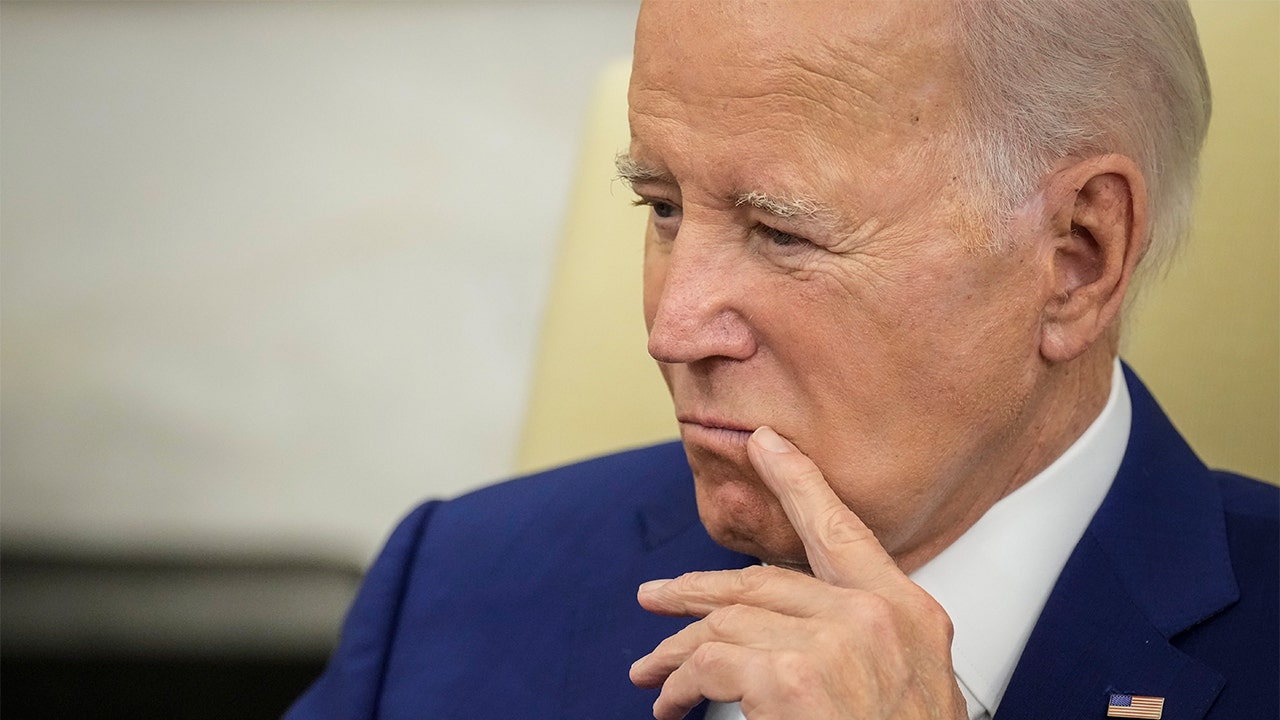Entertainment
If you liked Nikki Glaser's roast of Tom Brady, wait till she flames herself in new HBO special

Long gone are the days of Nikki Glaser’s WAP (her words, kinda) but in her new HBO special, “Someday You’ll Die,” taped at the Moore Theater in Seattle, her hilarity is on full display. Entwining topics like our ever-changing bodies, navigating friends with babies, role playing, freezing eggs, the animal kingdom and, ultimately, her own mortality, she’s empathetic and raw, brutally honest, and even more brutally dark. Glaser is as real as it gets and as funny as they come, and on May 11, there are two ways to soak her in. “Someday You’ll Die” on HBO or at the Palladium during the Netflix is a Joke Festival. We recommend both.
Glaser’s reach is worldwide because she’s so much more than just a comic and master roaster (Please see: Sunday’s roast of Tom Brady). She played host on “FBOY Island” for three seasons, is the current host of its spinoff “Lovers and Liars,” and she’s also an incredible singer, as America learned when she took her Snowstorm head off on “The Masked Singer.”
Glaser picked up guitar during the pandemic, which ultimately led to “Some Day You’ll Die” having a theme song, aptly titled “Someday You’ll Die,” (available on all streaming platforms Thursday) which Glaser wrote and recorded. Is she great at everything? Well, she did exit “Dancing With the Stars” (Season 27) a tad early, but as she says, “I’m so grateful that it went the way it did because being voted off first is way funnier than any of the other numbers.”
And for someone who appears to be able to do it all pretty well, Glaser isn’t trying to be a role model. She just inadvertently might be. And for someone who claims to be aging, she looks better than ever — could she be the new George Clooney?
You seriously have never looked better while roasting your body on stage. What’s your routine like heading into a taping like this with a dress like that?
Nikki Glaser: There’s definitely this thought that this is a big deal and want to look as good as possible. I’ve been hearing about Pilates for 20 years and I finally gave in three months before the special. It was about aesthetics that I got into it, and then it was really about the strength to pull off that final gang bang act out. I couldn’t balance like that and engage my core had I not been doing Pilates. It’s so ironic that I started Pilates to look good, but I would never have been able to hold it that long during the bit had I not been doing it. I didn’t even realize I was training for that.
It’s an admirable bit. Also admirable, you being so open about your body struggles.
Yeah, I just struggle with aging and being perceived a certain way, and feeling like part of my talent is dependent on me being f—able and attractive and now I need to maintain that. I feel insecure that if I’m not funny enough, at least I can be nice to look at and if I’m not nice enough to look at, I have to be funnier. It’s always like a balancing act with those things and it’s a huge amount of pressure. Timing the spray tan right, getting your hair done in the right way, making sure you sleep well and drink enough water, then you have to have a certain facial the day before — I probably do as much stuff getting ready as Victoria’s Secret models do before a runway. It really is ridiculous too because no one is expecting that of me, and no one needs it of me. I just hold myself to a level of excellence for these things that are unachievable. I always feel like I didn’t do enough. No matter what, I’ll never feel good enough. Which is, you know, what the special is about as well.
I think a lot of people feel like that and sometimes they need to hear it from someone they look up to or are a fan of.
There’s a part of me that’s like, OK, should I move into this phase of my life where I don’t say anything negative about myself? Don’t talk about how I feel about myself most days because people don’t want to hear it? Especially if someone looks at me and goes, oh, she thinks she’s fat? I’m fatter than her, so I must be disgusting. We all have something, and I know that may not be the best example, but I’m not an example to young women. I am just telling my truth and it’s not my job as a comedian to be a role model. I’ve never wanted to be a role model because I think it’s too much pressure. I’d like to be a role model in the sense that people feel like they can be honest about how they’re feeling.
Nikki Glaser onstage at the Moore Theater in Seattle during her HBO special “Someday You’ll Die,” which begins airing Thursday.
(Jennifer Rose Clasen)
It’s interesting because some might say that admitting your flaws and self-doubt is role model behavior for them.
Yeah, that’s the one I like to hear. I like it when people say they have the same thoughts, or I have depression. What I’ve always really wanted from my celebrities was to not hear about how great their lives are, how much they love themselves, and how they have it together. I want to hear from the people that I put on a pedestal that they are hanging on by a thread. That always makes me feel way better and it literally helps heal me more than motivational things like, you gotta wake up every morning and love yourself! It helps me more to go, oh, my God, Taylor Swift feels insecure too?
That opens up my eyes to the fact that it’s not worth dwelling on when I see someone like Taylor Swift having the same thoughts as me. I think, OK, then it’s ubiquitous. I’ll never overcome it because if I were Taylor Swift, I’d overcome it. And I don’t really have solutions on how to fix it. I’m more of just complaining about the way it is. Sometimes I feel like my material doesn’t offer a solution, it’s just telling people mostly that life sucks and one day you die, but I think there’s freedom in the truth and not putting a spin on it. I don’t want to be told about what the solution is. If that works, we’d all do the solution.
You’re kind of like if T. Swift wrote lyrics we can’t publish in the L.A. Times.
Oh, my gosh, that means so much to me! Taylor Swift is who I would like to be if I could pick what I was good at. I’ve always loved singing and I’ve always loved music. I got some bad feedback when I was young about my voice and I was just discouraged until, you know, my mid 30s. I was told I wasn’t good, so I decided I had to find another industry. I tried acting but wasn’t a good actress and I was like, what the f—, man? How am I going to get in? That’s how I discovered stand-up and obviously the shoe fit perfectly. It was exactly what I like about music, but I could be more specific. And it was exactly what I like about comedy, but I could write it myself.
What came first, “Someday You’ll Die” the special or “Someday You’ll Die” the song?
We shot the special first. My boyfriend [Chris Convy] executive produced it, and we were in editing talking about what song I wanted for the credits and I was like, I like this song! And this song! And this song! He’s like, OK, well, we’re a little over budget, so this is going to have to come out of your money, which I was willing to do because ending on a really good song is important to me. I was thinking, how much could it be? He goes, it’s gonna range from 20K to 35K for each song. After hearing that I thought, I’ve been taking voice lessons, I did all right on “The Masked Singer,” and I’ve been playing guitar since COVID, so what if I wrote a song?
I pitched it and all of the pieces came together. I’ve always wanted to write a song and it’s my favorite thing I’ve ever done. It’s the proudest I’ve ever been because I never tried to write a song before; I was always scared I couldn’t do it. I think in life you’re just scared to take opportunities, so when this came about — writing a song for my HBO comedy special — I had to do it. I think it comes from a place of insecurity. I say yes to everything because I’m scared that they’ll stop asking if I don’t. There’s also this thing of I never want to get to a point in my life when I’m 60 and I look back and go, oh, you didn’t do that because you were scared.
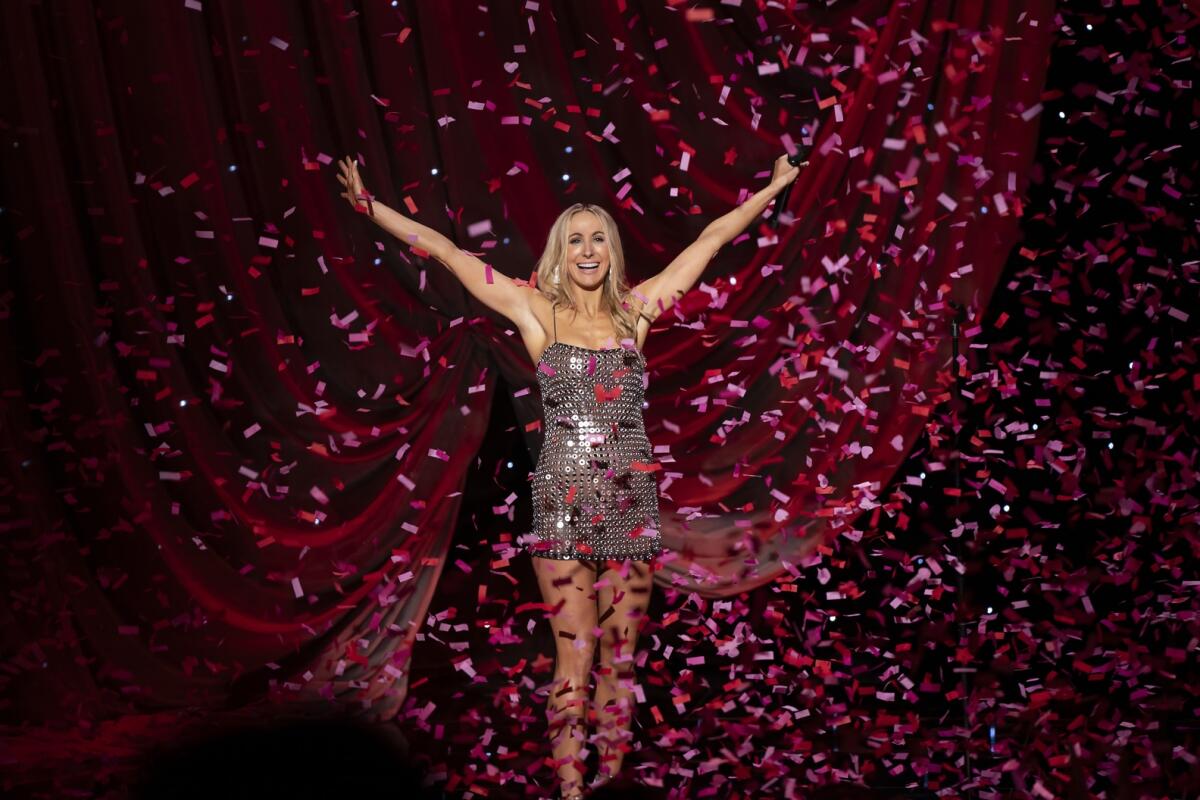
Glaser has been everywhere these days, from TV shows like “FBoy Island” and “The Masked Singer” to last Sunday’s Tom Brady roast on Netflix.
(Jennifer Rose Clasen)
At this point, you certainly seem fearless in more ways than one. OK, so Hollywood Palladium May 11. Have you played there before?
Yeah, we did a roast there, I think it was Bruce Willis? It might have been all of them. I really don’t know where I do these things, but there was some roast in the Palladium, so I have! I’m really excited about this year’s festival because it looks so huge. I can’t believe how many shows are going on. I hope people show up because I have new material and it’s a chance for me to use some saved stuff I’ve been working on. I also have stuff that maybe was in the special that I have worked on, just expounding my feelings about it all. It’s also just such a big fun room and with the festival, energy will be in the air. And it’s the last show I do for a heavy month of work, and I always go to see Taylor Swift on the third night she’s performing because I know as a performer, the first night you’re like, OK, I have two more and need to conserve my energy. But on that third night, you’re just free and I’m telling you, the night of my show I’m going to feel so free. It’ll just be a catharsis on stage. I cannot wait.

Movie Reviews
Dead Dead Demon’s Dededede Destruction Part 2 Anime Film Review
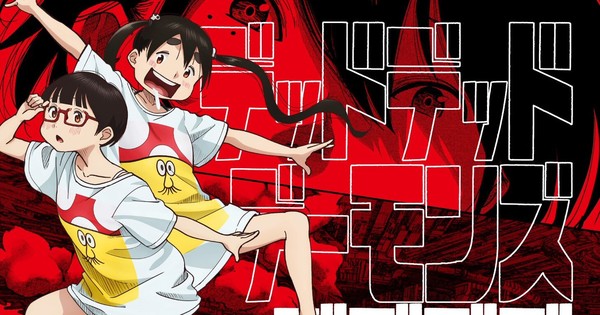
Dead Dead Demon’s Dededede Destruction Part 2 is a film I never want to watch again. However, this is not because it’s bad. Rather, it’s a testament to just how incredible this film is.
The film is full of well-developed and memorable characters—especially its lead trio, Ouran, Kadode, and Ooba. It’s wonderfully animated—combining cartoony character designs with ultra-violence to create something shocking and memorable. To top it off, it has incredibly strong themes conveyed with maximum impact through excellent storytelling.
What makes it hard to watch (or want to rewatch) is the simple fact that it feels too damn real. Despite the aliens, UFOs, super-lasers, and Doraemon-inspired gadgets, this is a film that is bound and determined to drag humanity and modern society into the spotlight—to use sci-fi trappings to put our blemishes on full display.
The central conceit of Dead Dead Demon’s Dededede Destruction is the idea that humans can (and will) get used to anything. Even when confronted with a world-changing event—like, say, the existence of alien life or a UFO floating above Tokyo for years—humanity as a whole doesn’t change. Instead, we just go on about our lives as usual. If it doesn’t directly affect us, we put it out of our minds.
This film kicks it up a notch from the first by showing that even things like public genocide are passively accepted by the masses. Even those who feel compelled to act do so with things like peaceful protests—basically doing nothing to directly help those in need, all while convincing themselves that they’re heroes fighting oppression. But then again, what is there that they can do? This film perfectly captures the masses’ self-righteousness and utter helplessness in the face of the apathetic, the powerful, and the government.
The movie is a damningly pessimistic look at humankind as a whole. The world is full of things we can’t control. People driven by their zeal or self-interest will crush the weak underfoot—never noticing or caring about those they’ve destroyed. In such a world, our only hope is to find something we care about and do all we can to protect it. That is the beautiful yet horrible message of this film.
While this story is full of villains and innocents, it’s hard to say there are any true heroes. Oh sure, we may sympathize with Ouran and Ooba, but the two of them ultimately have a body count that surpasses government genocide squads and vigilante alien killers alike. Yet, throughout the film, we root for the pair. If nothing else, we can see that they are working for, if not altruistic reasons, then for human ones that we can understand on a deeply personal level. Love is their driving motivation—even if they’re forced to accept the cost of that love by the time the credits roll.
In the end, Dead Dead Demon’s Dededede Destruction Part 2 is a powerful film that will leave you depressed about the state of the world. It puts the foolishness of humanity on full display and concludes that there is no easy fix—that no force, internal or external, will appear and make everything alright. All we can do is take our happiness where we can get it—and sometimes, we may find ourselves in the right place at the right time to make things just a little bit better.
…Or maybe we’ll die horribly due to events wholly outside of our control.
Entertainment
Appreciation: For 'Alienist' author Caleb Carr, rescuing a cat meant rescuing himself
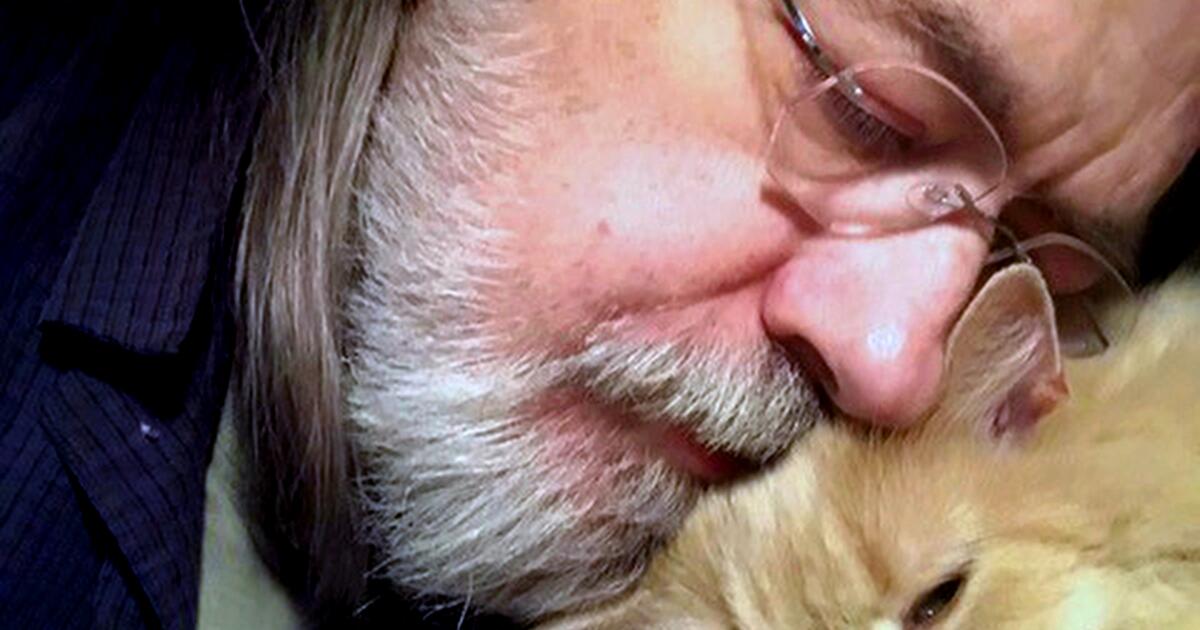
Caleb Carr, the novelist and military historian who died of cancer Thursday at age 68, was best known for exploring the darker angels of human nature. His breakout novel, “The Alienist” (1994), helped pioneer the historical thriller as we know it, telling the grisly tale of a child psychiatrist tracking a killer of young male prostitutes in 1890s New York. His other books include a sequel, “The Angel of Darkness” (1997), and a historical study of terrorism and warfare, “Lessons of Terror” (2002).
But when I had a late-night, hourlong conversation with Carr in late January, we mostly talked about our mutual love of cats.
Carr, his illness already far along, was eagerly awaiting the publication of what he correctly figured would be his final book, “My Beloved Monster.” It’s the story of his bond with Masha, the Siberian forest cat with whom he shared his fortress of a home in upstate New York, near a ridge called Misery Mountain. Contracted to do a third “Alienist” book, Carr instead called an audible, choosing to write his first memoir. Dipping briefly into his tortured childhood — he was regularly beaten by his father, the journalist and Beat poet muse Lucien Carr, and grew up in hardscrabble bohemian conditions on Manhattan’s Lower East Side — the book’s primary subject is how Carr found solace in the unconditional love of animals, and with his grief for Masha, who died in April 2022.
Staring down death, talking about grief, he was casually, effortlessly, macabrely funny that night. He spoke of how he argued with his publisher, Little, Brown, to forgo the standard “Author of ‘The Alienist’” tag on the front cover, which features a photo of his blond, fluffy rescue cat: “I thought, ’Guys, they’re going to think I wrote a book about murdering cats or some horrible thing.’” He discussed the challenges of getting cat lovers to read a Caleb Carr book: “We may have to convince them. These may not be people who spend their time reading grim stories about serial killers 130 years ago.”
And we talked a lot about what animals can teach us, and how they can even provide a kind of love that many of us didn’t know growing up. Even in childhood, when his father was knocking him down flights of stairs, Carr had pets to comfort him. “It’s amazing to think about it now, but there were cats, and other animals, that were trying to make me feel better,” he said. “The idea of that was so at odds with everything I was experiencing.”
I didn’t realize how much I had in common with the guy who wrote “The Alienist,” a book I admire for its vivid, doggedly researched detail but whose author I hadn’t studied. We were both basketball freaks; when we spoke, Carr’s beloved Knicks were on a roll (“They’re doing scarily well,” he said). We both survived childhoods fraught with danger, though mine wasn’t as dramatic or brutal as Carr’s. And we have both found comfort in the companionship of cats, known for self-sufficiency but also, quiet as it’s kept, quite loving and dependable when the chips are down. If you have a cat, and you’re not feeling well, that cat won’t stray far.
As we talked, my attention-hogging, gray-and-white tuxedo cat, Mr. Kitty, strolled in front of my laptop camera. “He’s cool-looking!” Carr enthused, the energy in his voice rising. I explained that he was a good cat but could also get pretty aggressive with his teeth and claws. He likes human flesh. “Well, they’re hunters,” Carr replied. “They’re wildlings. Sitting inside, being all the things that they’re pictured as being in Victorian literature, is not their nature.” Over the years I have always tried not to get mad at my cats for being cats — knocking things over, going on the attack when I least expect it. Carr’s words have actually helped me succeed in this endeavor.
“My Beloved Monster” by Caleb Carr
(Little, Brown)
Carr, too, could have been a wildling. “I could have been one of those dead-eyed drone troublemakers that comes out of an abusive household very easily, if it hadn’t been for cats,” he told me. His childhood home life was chaos, but he and his siblings always had pets. “All the animals we had really did teach us enough about love that we understood it outside of any human definition, although this was never something I talked about with anybody,” he said.
Carr’s longtime agent, Suzanne Gluck, was also a friend since they were both in high school at Friends Seminary in Manhattan. The irony of a future military historian attending a Quaker school is not lost on Gluck. “He was such a square peg in a round hole,” Gluck said in an interview the day after Carr’s death. “The administration really didn’t know what to make of him.”
He didn’t talk much about his home life then. And he was no misanthrope. “He was this pied piper,” Gluck said. “He was this very vibrant, interesting, thoughtful, charismatic guy with a lot of friends. He wasn’t someone sitting in the corner, troubled and wanting to be alone.”
Gluck recalls her response when Carr told her he was writing about Masha instead of serial killers: “This might be where the music stops.” The assignment, after all, called for more “Alienist.” But Bruce Nichols, then the publisher at Little, Brown and Carr’s editor, loved the story of Masha. (As the husband of a veterinary behaviorist , his might have been the perfect pair of eyes for the project.)
“When I read it, I just stopped thinking about ‘The Alienist,’” Nichols said. “I stopped thinking about fiction and just thought about all the great books that had been written as memoirs by dog and cat owners”— books like “Merle’s Door,” Ted Kerasote’s account of lessons learned from his Labrador mix. Carr, and Masha, got the go-ahead.
Readers should be thankful for that. Carr wasn’t in need of redeeming in his final years, but “My Beloved Monster” is nonetheless an act of redemption. It gives specific life, and teeth and claws, to that old cliché about how we don’t rescue animals; they rescue us.
Movie Reviews
Memorial Day Movie Review: A Tribute to Sacrifice and Service –

A staff report
Title: Memorial Day
Director: Samuel Fischer
Starring: James Reynolds, Sarah Connors, Michael O’Neal
Genre: Drama/War
Rating: PG-13
“Memorial Day” is a powerful drama that weaves together the past and present in a poignant tribute to the sacrifices made by service members and their families. Directed by Samuel Fischer, this film stands out for its emotional depth and compelling storytelling.
The narrative unfolds through the eyes of Kyle Vogel (James Reynolds), a young man who discovers his grandfather Bud’s (Michael O’Neal) World War II footlocker on Memorial Day. What begins as a simple curiosity turns into a profound journey as Bud reluctantly opens up about his wartime experiences. The film seamlessly transitions between the present day and flashbacks to the 1940s, showcasing Bud’s harrowing and heroic moments on the battlefield.
James Reynolds delivers a heartfelt performance as Kyle, whose growing understanding and appreciation of his grandfather’s sacrifices mirror the audience’s own emotional journey. Michael O’Neal is exceptional as Bud, capturing the quiet strength and lingering pain of a man who lived through unimaginable horrors. Sarah Connors, playing Kyle’s mother and Bud’s daughter, adds another layer of depth to the family dynamic, highlighting the generational impact of war.
The cinematography and production design deserve special mention, effectively transporting viewers from the calm of modern-day Minnesota to the chaotic frontlines of World War II. The film’s score, composed by Jonathan Miller, enhances the emotional resonance of key scenes without overpowering them.
“Memorial Day” is not just a war movie; it’s a meditation on memory, legacy, and the enduring bonds of family. It reminds us that the impacts of war extend far beyond the battlefield, affecting generations and shaping lives in ways that are often unseen.
While the film does not shy away from the brutal realities of war, it also offers moments of hope and resilience. It’s a fitting tribute to the men and women who have served and a reminder of the importance of remembering their stories.
In conclusion, “Memorial Day” is a moving and thoughtful film that honors the sacrifices of the past while connecting them to the present. It’s a must-watch for anyone looking to understand the true meaning of this solemn holiday.
Rating: 4.5/5 Stars
About Author
Related
-

 Movie Reviews1 week ago
Movie Reviews1 week agoIs Coppola’s $120M ‘Megalopolis’ ‘bafflingly shallow’ or ‘remarkably sincere’? Critics can’t tell
-

 Crypto1 week ago
Crypto1 week agoVoice of Web3 by Coingape : Showcasing India’s Cryptocurrency Potential
-

 Politics1 week ago
Politics1 week agoTrump predicts 'jacked up' Biden at upcoming debates, blasts Bidenomics in battleground speech
-

 News1 week ago
News1 week agoA bloody nose, a last hurrah for friends, and more prom memories you shared with us
-
/cdn.vox-cdn.com/uploads/chorus_asset/file/24038601/acastro_STK109_microsoft_02.jpg)
/cdn.vox-cdn.com/uploads/chorus_asset/file/24038601/acastro_STK109_microsoft_02.jpg) Technology1 week ago
Technology1 week agoMicrosoft’s Surface AI event: news, rumors, and lots of Qualcomm laptops
-

 News1 week ago
News1 week agoVideo: A Student Protester Facing Disciplinary Action Has ‘No Regrets’
-

 World7 days ago
World7 days agoPanic in Bishkek: Why were Pakistani students attacked in Kyrgyzstan?
-
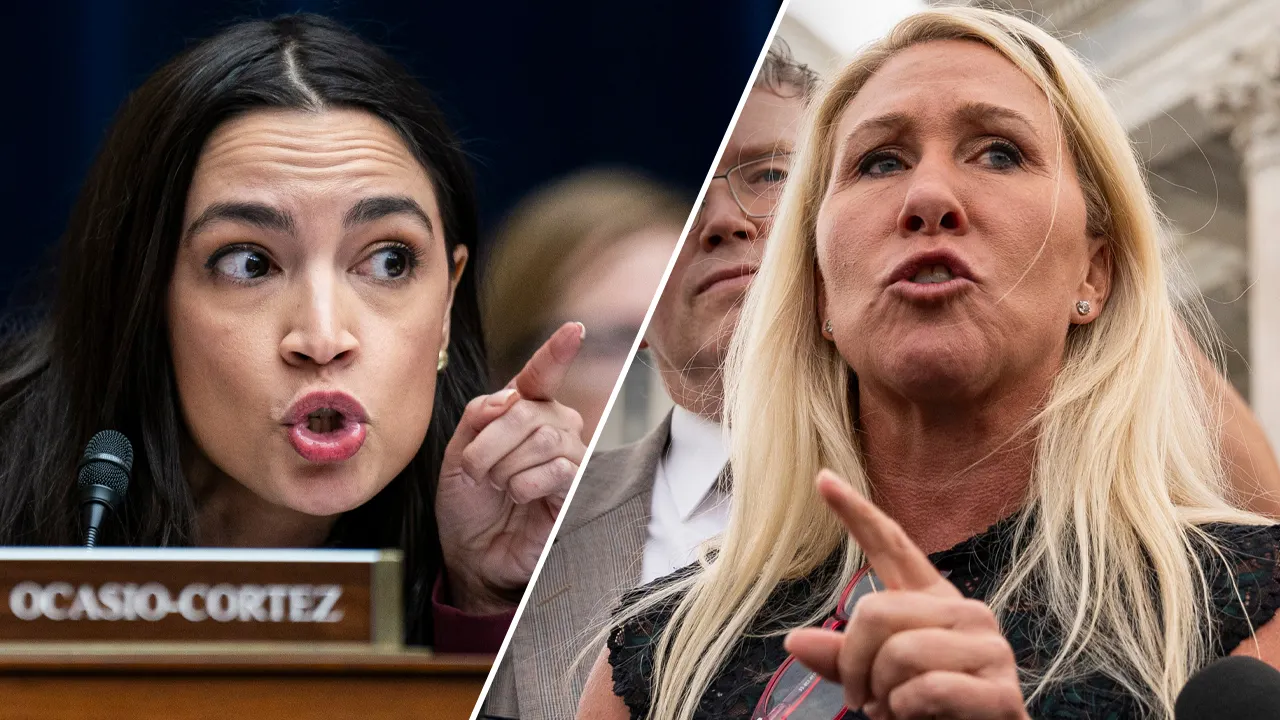
 Politics1 week ago
Politics1 week agoAOC, 'baby girl' Marjorie Taylor Greene trade barbs in fiery Garland hearing: 'Are your feelings hurt?'





:max_bytes(150000):strip_icc():focal(811x224:813x226)/Preschool-Teachers-052624-cf9e27e888df4f3faa9f245f3a3f6d2d.jpg)








